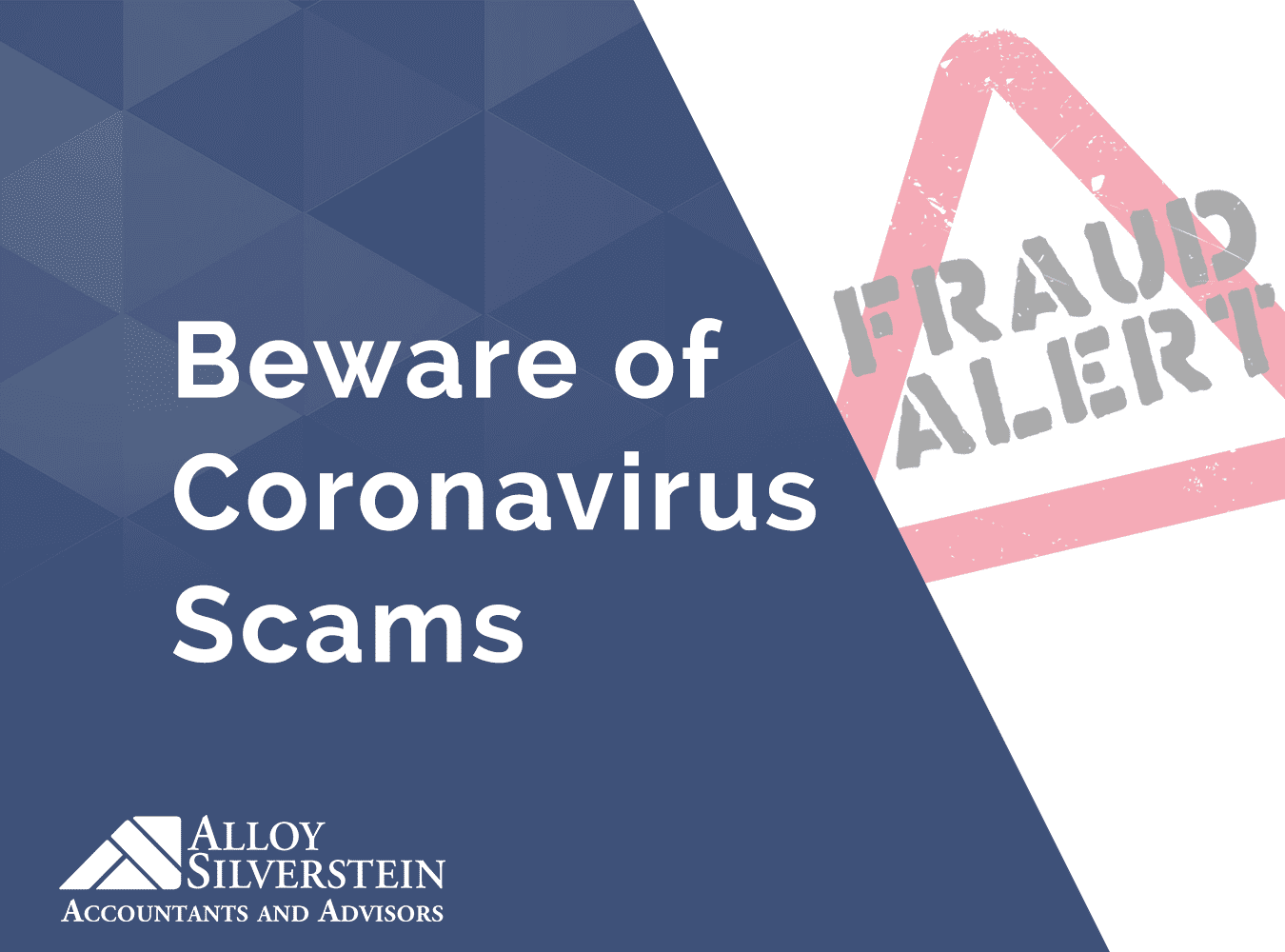
With the nation in fear and panic over COVID-19, individuals are more susceptible to fraud and theft. Fraudsters know customers may be extra vulnerable during these times, so they are getting creative. Protect yourself by being aware of these different tactics that scammers are using in an attempt to get a hold of your information.
Here are six scams going around that you should be aware of:
Many celebrities, individuals, and businesses have been giving back to those in need during this time. However, it is important to be wary of unknown phone calls or text messages asking for donations for different charities. If you are considering giving back, make sure it is through a reliable source or organization before you give donate your money or supplies.
With many companies working remotely, be careful where you are sending personal information. If you are submitting important documents online, make sure it is through a secure portal. Do not submit information through an unsecure network or website.
See more fraud prevention and identity theft tips from Alloy Silverstein →
Just because you recall a familiar logo does not mean it is a legitimate business. Hackers steal logos to get you to send money or personal information thinking it is a trusted company. Be sure to check the sender to confirm it is the correct business.
For up to date, reliable information go to:
As of right now, there are no treatments or cures for this virus. Therefore, do not believe any false claims or online offers for medicine. Do not trust anything that suggests it can prevent, treat, or cure the virus. These are hacking attempts to get your personal and/or credit card information
Do not fall for fraudulent emails or recorded phone calls that claim to be a medical organization. Refrain from giving out any of your information including usernames, passwords, or other personal details. Also, do not click on links (from text messages or emails) until you have ensured the sender is someone you know or a verified organization. Double check all email domains. Do not believe fake apps available for download that claim to have an updated coronavirus map and information.
The real Johns Hopkins University website has the updated map and statistics you are looking for without downloading a fraudulent app.
If you are seeking in-demand products such as paper products and groceries, be cautious of buying online from unreliable sources. Websites may be claiming to have supplies they do not actually possess to steal your money.
We’re already living in uncertain times. By following these tips and trusting your instincts, you can help protect yourself and your wallet from fraudsters.
Alloy Silverstein strives to keep our clients and business community up-to-date as we are all impacted by this pandemic. Contact us or visit our COVID-19 Resource Center for more details and guidance.
Empowering business owners and individuals in South Jersey and Philadelphia to feel confident through proactive accounting and advisory solutions.